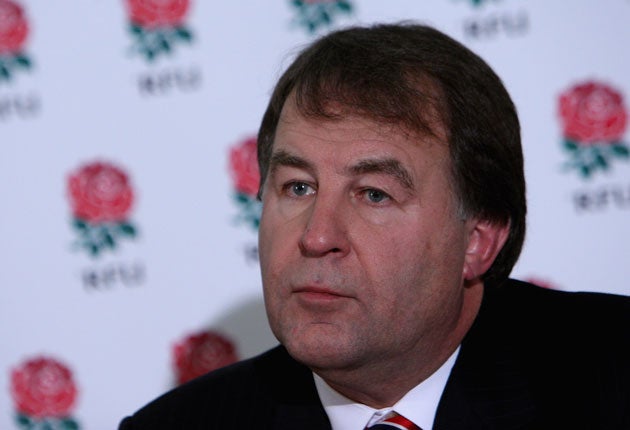RFU faces bidding war with Japan over 2015 cup

Your support helps us to tell the story
From reproductive rights to climate change to Big Tech, The Independent is on the ground when the story is developing. Whether it's investigating the financials of Elon Musk's pro-Trump PAC or producing our latest documentary, 'The A Word', which shines a light on the American women fighting for reproductive rights, we know how important it is to parse out the facts from the messaging.
At such a critical moment in US history, we need reporters on the ground. Your donation allows us to keep sending journalists to speak to both sides of the story.
The Independent is trusted by Americans across the entire political spectrum. And unlike many other quality news outlets, we choose not to lock Americans out of our reporting and analysis with paywalls. We believe quality journalism should be available to everyone, paid for by those who can afford it.
Your support makes all the difference.The Rugby Football Union, keen to stage the 2015 World Cup in England despite deep concerns over the financial guarantees being demanded by the tournament’s custodians – not to mention the painful effects of a credit crunch that led to a slashing of corporate hospitality prices for recent Six Nations matches at Twickenham – is likely to face stiff competition from Japan, who narrowly missed out on the 2011 event after being blind-sided at the last minute by New Zealand.
International Rugby Board officials, who are scheduled to announce the venues for the 2015 and 2019 competitions in July, held discussions with the Prime Minister Taro Aso in Tokyo yesterday and pronounced themselves impressed by the level of government support for a new bid. “We shared very positive meetings with the Japanese union and the government,” the IRB chairman, Bernard Lapasset, told Reuters news agency.
While the Japanese are confident that the current economic turmoil will not have an adverse effect on their proposals, the noises from Twickenham have been less reassuring. Earlier this season, the RFU’s chief executive, Francis Baron, openly ridiculed the IRB’s insistence on an underwritten guarantee of around £75m from nations interested in hosting the global jamboree. “I can’t see how any individual union could bid on the current basis, and in the current economic climate, without government support,” he said last October.
These figures have come down a little in recent months, and the RFU has received some government support of its own from Gordon Brown. But with Aso throwing himself behind the Japanese project by agreeing to sit on the bid committee himself, the prospect of a first tournament on Asian soil is stronger than it once seemed.
Join our commenting forum
Join thought-provoking conversations, follow other Independent readers and see their replies
Comments